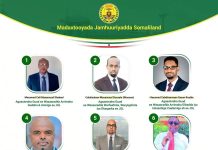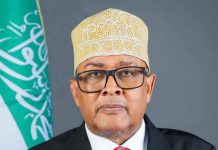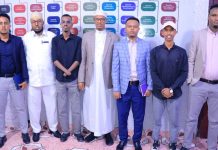Somaliland Non- State Actors Forum (SONSAF) was leading subsequent policy interventions in the areas of the extractive industries, these policy interventions aimed at promoting good governance and regular citizens’ participation in policy and decision-making process.
The initiative of SONSAF on the national extractive sector commenced in 2013, since then, waSONSAF successfully hosted four forums on national extractive sector including this forum which was held on March 29th, 2017.
The Ministry of Energy and Minerals demonstrated in this last Extractive Industry Forum of 2017 some coherent strategies in the areas of communities’ engagement, awareness raising and increased level of experiences and operational capacity compared to past forums.
The Ministry has also employed some professional staff in this field, in the previous years of 2014, 2015, 2016, the Minister was the only person who is able to respond questions from participants but in this year of 2017, there were some hired professional staff able to reflect questions and criticisms from the participants of the forum. SONSAF has observed that the Ministry has benefited from the past forums of the extractive sector and utilized the outcomes of policy recommendations.
In the meantime, the exploration activities as seismic acquisition program is again was restarted in 2017; this is very huge operation that may attract both development projects and conflict as many Sub- Saharan African countries experienced a perpetuate conflict caused by natural resources and Somaliland’s economy was engulfed by civil wars and the legacy of the dictatorship of Mohamed Siyad Barre that ruled the Somali Republic for a period of 22 years.
Nonetheless, Somaliland is endowed untapped natural resources in which the present efforts of policy dialogue intend to inform the state mandated institutions on the appropriate standards for proper exploitation that can lead effective and efficient management of country’s natural resources and on behalf of citizens.
From this perspective, the Government of Somaliland has accelerated its interventions and ambitious goals of natural resources exploitation, while recently concluded a new deal between some private companies and Government to reconstruct the Berbera cement factory that was destroyed during the civil wars in 1991. Many of the participants that attended in the forum argued the need for appropriate policy and legal framework for natural resources utilization.
Moreover, there are many challenges yet ahead in the process of exploration activities; some are related with climate change which caused recurrent droughts occurring in Somaliland where the rural communities lost around 70% of their livestock as the Government of Somaliland drought committee reported and situation of poor livelihoods may constrain the successive operations of the exploration initiatives, since many rural communities today are hardly to survive due to bankruptcy and nascent conditions in Somaliland.
Regarding conditions of the rural communities, particularly the areas that activities of the survey of the oil and gas is undertaking, where there is likelihood of insecurity and disturbance could be unavoidable due to emergence of poverty, which the Government of Somaliland would need to adopt a coherent strategy to embark on its restocking and recovery process.
The Ministry has presented strategies and plans towards the environmental protection and minimizing the peril to the environmental hazards. The Minister appealed from all concerned actors to support the process of the survey and not to politicise the natural resources exploitation efforts in Somaliland.
On the other hand, this debate was mostly focusing on the legal and policy development which the Minister has confirmed that his Ministry submitted the draft laws and policies on oil and gas to the House of Representatives, but question asked to the Minster focused on the legitimacy of the current survey that is underway in the regions of Togdheer, part of Sool and Maroodi-jeex, since the legal framework is not yet approved by the parliament.


































